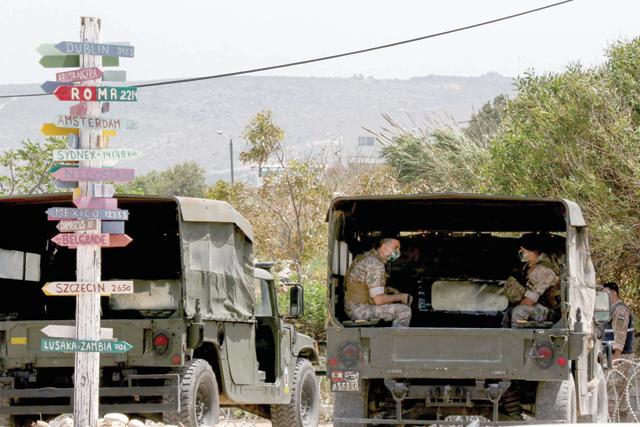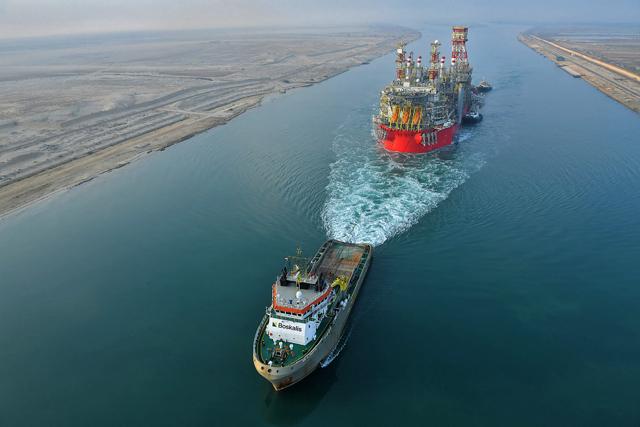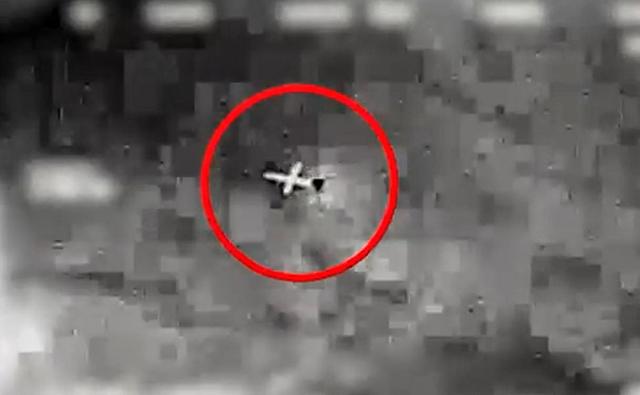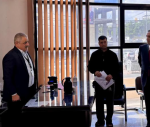You are here
Lebanon, Israel end third round of sea border talks
By AFP - Nov 12,2020 - Last updated at Nov 12,2020
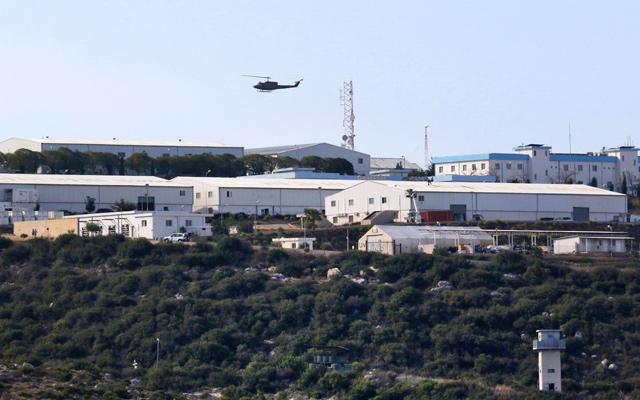
A photo taken on Wednesday shows a Lebanese army helicopter flying over the southern Lebanese town of Naqura (AFP photo)
NAQURA, Lebanon — Lebanon and Israel, still technically at war, wrapped up a third round of maritime border talks on Wednesday under US and UN auspices to allow for offshore hydrocarbon exploration.
The indirect talks mediated by the United States lasted for several hours at a base of the UN peacekeeping force UNIFIL in the Lebanese border town of Naqura.
A joint US-UN statement said the talks had been "productive".
The United States and the office of the UN Special Coordinator for Lebanon "remain hopeful that these negotiations will lead to a long-awaited resolution", it said.
Lebanon's National News Agency said both sides would reconvene on December 2.
After years of quiet US shuttle diplomacy, Lebanon and Israel in early October said they had agreed to begin the negotiations in what Washington hailed as a "historic" agreement.
The first two rounds of talks were held on October 14 and 28-29.
The negotiations are meant to focus on a 860-square-kilometre disputed sea area according to a map registered with the United Nations in 2011.
But Lebanon has now demanded an additional area of 1,430 square kilometres further south, Lebanese energy expert Laury Haytayan said, characterising the new phase of talks as a "war of the maps".
She said the additional area extends into part of the Karish gas field which Israel has assigned to Greek firm Energean for exploration.
'New lines'
An Israeli source close to the talks said that, meanwhile, Israel has demanded the sea frontier be moved further north, deeper into areas claimed by Lebanon.
"The Israeli delegation itself presented a line that is north of the border of the dispute, and clarified that no talks will be held on a line that is south of the border of the dispute," the source said.
The head of the Israeli delegation, energy ministry director general Udi Adiri, earlier this month in a letter to Energean said discussing any areas outside the initial disputed area was out of the question.
“There is no change, and no perspective of change about the status of the Israeli commercial waters south of the disputed area, including of course, Karish and Tanin” gas fields, Adiri wrote in a letter to CEO Shaul Tzemach.
On Wednesday, Lebanese newspaper Al Akhbar quoted a well-informed source as saying the talks stood a 50-50 chance of success.
“Both sides went to the talks over 860 kilometres square, but then new lines started to be produced, after the enemy decided the Lebanese demand was a ‘provocation’ and in exchange granted itself the right to put forward new lines not based on any rules in international law,” the newspaper said.
In February 2018, Lebanon signed its first contract for offshore drilling for oil and gas in Block 9 and Block 4 with a consortium comprising energy giants Total, ENI and Novatek.
Lebanon in April said initial drilling in Block 4 had shown traces of gas but no commercially viable reserves.
Exploration has not started in Block 9, part of which lies in the disputed area.
Related Articles
NAQURA, Lebanon — Lebanon and Israel resumed US-mediated negotiations over their disputed maritime border on Tuesday after a months-long hia
BEIRUT — Lebanon on Monday called for US mediation after Israel moved a gas production vessel into an offshore field, a part of which is cla
OCCUPIED JERUSALEM — The Israeli forces said they intercepted three drones launched by Lebanon's Hizbollah movement on Saturday that were he


